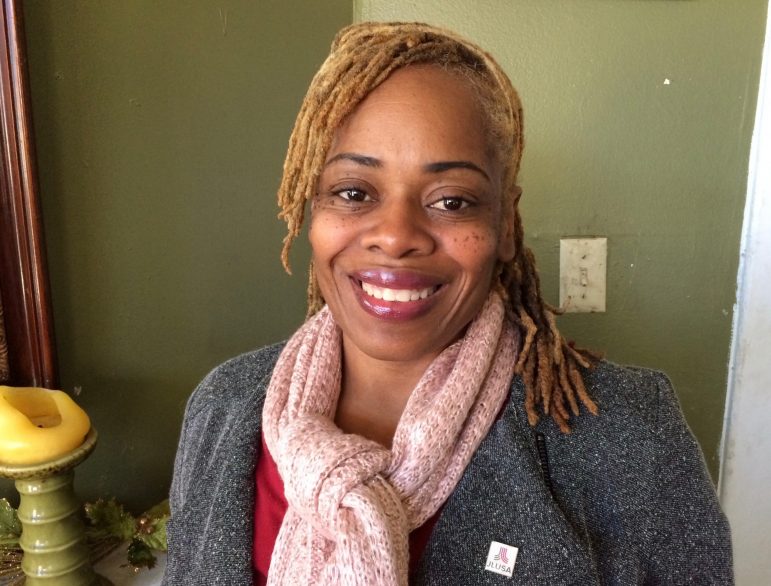For millions of Americans, past criminal convictions mean they can no longer vote. Getting back that right in many states is straightforward: serve your time, do probation, and have your voting rights restored. But in Alabama, those with felony convictions face enormous struggles, especially when they’ve committed certain crimes. We’re talking about crimes of moral turpitude. If you’re confused, you’re not alone.
Take Martha Shearer. The 80s and 90s were wild and dangerous times for her. Not only did she do crack cocaine, she sold it. One day, she was waiting for a shipment.
“And I was at my mom’s house, and I received a call told me my package was at my house,” she says. “I went home. And when I went in and got the package, I was on my way back out the door, and the feds were coming in.”
She was sentenced to five years in prison. She was a few months pregnant with her second son. When she got out of prison, she applied to have her voting rights restored. The Jefferson County Board of Registrars approved it.
Here’s where it gets odd. Shearer’s brother committed a similar crime multiple years later, but Shearer says he was denied the right to vote.
Denied, even though both had felony drug convictions. Both applied to have voting rights restored in the same county. That’s because when it comes to crimes of moral turpitude, at 67 counties, you might get 67 different answers, even if two different people committed the same crime. It’s extremely subjective.
“See that’s the problem with crimes of moral turpitude is there’s no definitive list of what’s a crime of moral turpitude,” says attorney Edward Still. He represented a man with a felony DWI conviction eight years ago in a case where moral turpitude came into play.
So what is it? “It’s defined by the Alabama Supreme Court as being something that’s a wrong in and of itself,” Still says. “I always joked for a long time that if it was in the ten commandments, it was probably a crime of moral turpitude.”
But it’s not that simple. Public drunkenness, speeding, attempted burglary. None of these is a crime of moral turpitude, at least according to past court rulings. Burglary is, Still says, “but if you attempt it and don’t carry through with it, it’s not a crime of moral turpitude.”
In case you were wondering, bigamy is a crime of moral turpitude. So is income tax evasion. It’s all super-confusing. Alabama is just one of a handful of states that even considers moral turpitude when it comes to restoring voting rights, according to Tomas Lopez, an attorney with the Brennan Center’s Democracy Program.
“Alabama ends up having one of the most confusing, complicated and harsh laws because of this really ambiguous definition of moral turpitude,” Lopez says.
But a committee here in the state is working to change that. The group includes Alabama lawmakers, former felons, and people who help ex-felons transition back to society. It will come up with clear guidelines on moral turpitude, and draft legislation this session.
Shearer, for one, says it can’t come soon enough. When she first got her voting rights restored, Barack Obama was running for president. Shearer wanted to be a part of the process. “It was very important to me to be able, because everybody knows that’s history,” she says.
She voted then, and in every election since, from presidential to city council races. And she encourages other ex-felons to at least apply for the right to vote.
“It’s like a roll of the dice,” Shearer says. “You might get lucky and you might not get lucky.”
A new law, proponents say, will make the process more about rules and less about luck.

